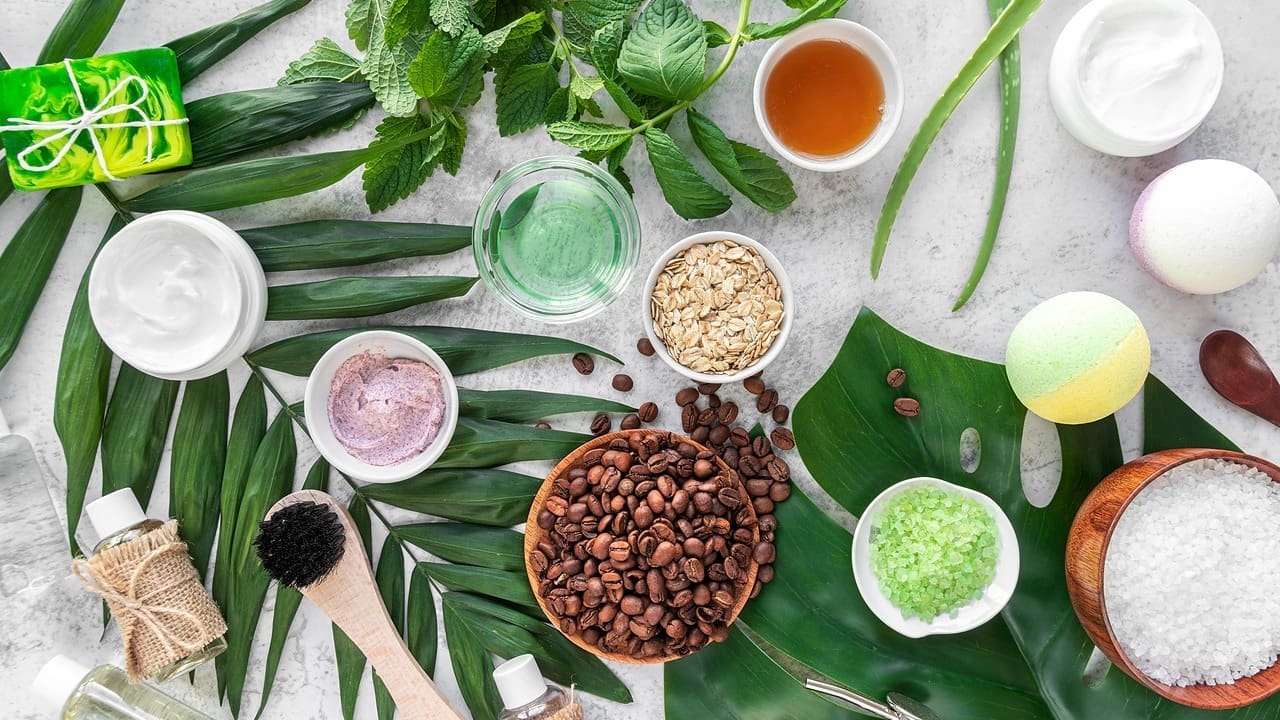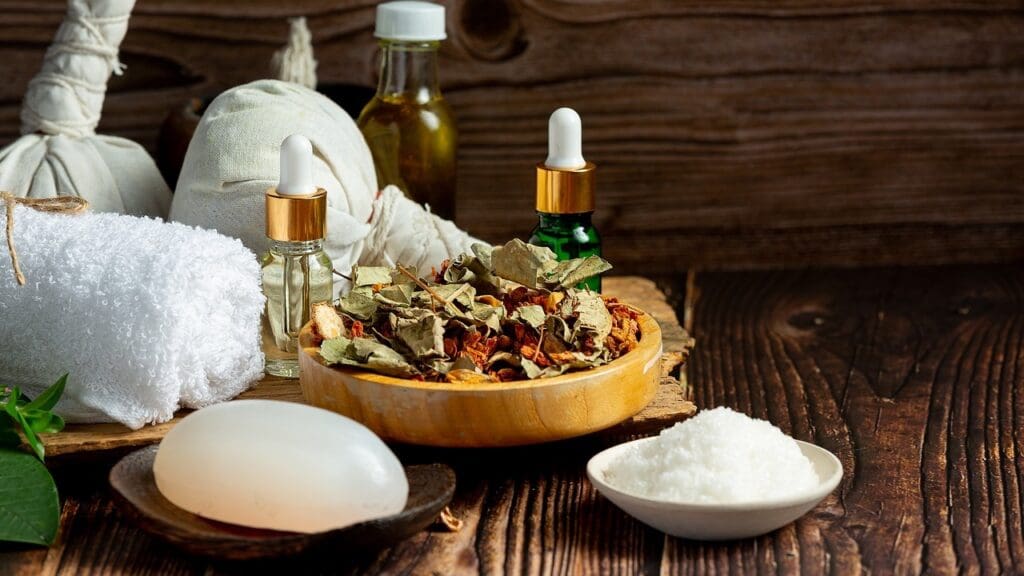
We know how tough it is to live with osteoarthritis. It can really affect your daily life. At Liv Hospital, our teams are here to help. We guide you on the best natural supplements to ease your symptoms.
Studies have found that some natural compounds can help with osteoarthritis. We focus on vitamins and supplements backed by science. These include glucosamine, chondroitin, curcumin, and vitamin D. They help keep cartilage healthy and lessen joint pain.
Adding these supplements to your treatment plan can help you manage osteoarthritis better. Our aim is to give you the best osteoarthritis management tips. We use research and care that puts you first.
Key Takeaways
- Certain vitamins and supplements can help alleviate osteoarthritis symptoms.
- Glucosamine, chondroitin, curcumin, and vitamin D are evidence-backed options.
- These supplements support cartilage health and reduce joint pain.
- A patient-centered approach is key in managing osteoarthritis.
- Liv Hospital’s expert teams provide complete care and advice.
Understanding Osteoarthritis and Joint Pain

Osteoarthritis is a condition that causes joint inflammation and cartilage loss. It needs a full treatment plan. We will look at what causes it and how natural supplements can help.
What Causes Osteoarthritis
Osteoarthritis is caused by many factors. Age, obesity, and past joint injuries are big risks. Cartilage loss and joint inflammation cause pain and stiffness, mainly in the knees and hips.
| Risk Factor | Description | Impact on Osteoarthritis |
|---|---|---|
| Age | Increased wear and tear over time | Higher risk with advancing age |
| Obesity | Excess weight on weight-bearing joints | Increased stress on joints, accelerating degeneration |
| Previous Injuries | Trauma to the joint | Potential long-term damage and increased risk |
How Natural Supplements Can Help
Natural supplements are a good way to manage osteoarthritis symptoms. Curcumin has strong anti-inflammatory effects that can lessen joint pain and swelling. Glucosamine and chondroitin may also help keep cartilage healthy and joints working well.
Understanding osteoarthritis and using natural supplements can help manage the condition. This approach can improve your life quality.
Osteoarthritis Natural Treatment: Evidence-Based Approaches

More people are using natural supplements to fight joint inflammation in osteoarthritis. These natural methods are becoming popular as they help manage symptoms. They are seen as good options alongside traditional treatments.
How Supplements Target Joint Inflammation
Joint inflammation is a big problem in osteoarthritis. It causes pain, stiffness, and makes it hard to move. Some natural supplements have anti-inflammatory effects. They help lessen these symptoms.
Glucosamine and chondroitin are examples. They not only reduce inflammation but also help keep joints healthy.
Research on Effectiveness of Natural Approaches
Many studies have looked into how well natural supplements work for osteoarthritis. A big review of these studies shows that some supplements can really help. They can make joint pain less and help people move better.
| Supplement | Effect on Joint Pain | Effect on Joint Function |
|---|---|---|
| Glucosamine and Chondroitin | Reduced pain in moderate to severe cases | Improved functional ability |
| Turmeric/Curcumin | Significant reduction in pain | Improved joint function |
| Omega-3 Fatty Acids | Moderate reduction in pain | Enhanced joint mobility |
Knowing how these supplements work and the research backing them up helps. It lets patients and doctors make smart choices. They can decide to add these natural options to treatment plans.
Glucosamine and Chondroitin: Best Osteoarthritis Supplements
Glucosamine and chondroitin are key in fighting osteoarthritis. They help keep cartilage healthy. This is vital for our joints.
How These Supplements Work Together
Glucosamine helps build and fix cartilage. Chondroitin stops cartilage from breaking down and keeps it moist. Together, they help slow down osteoarthritis and ease its symptoms.
Recommended Dosages and Forms
Take 1,500 mg of glucosamine and 1,200 mg of chondroitin daily. They come in capsules or tablets. Always pick high-quality supplements from trusted brands.
Potential Side Effects and Interactions
Most people find glucosamine and chondroitin safe. But, they might upset your stomach. They could also mix badly with blood thinners. Always talk to a doctor before starting.
| Supplement | Typical Dosage | Potential Side Effects |
|---|---|---|
| Glucosamine | 1,500 mg/day | Gastrointestinal issues |
| Chondroitin | 1,200 mg/day | Interaction with blood thinners |
Turmeric and Curcumin: Powerful Anti-inflammatory Support
Turmeric has been used for centuries in traditional medicine. Its active ingredient, curcumin, is a strong anti-inflammatory. It helps ease osteoarthritis symptoms. We’ll look into how curcumin offers relief for those with osteoarthritis.
Curcumin’s Mechanism of Action
Curcumin fights inflammation by stopping certain pathways in osteoarthritis. It blocks the production of pro-inflammatory enzymes and cytokines. These are molecules that cause inflammation. This action reduces joint pain and swelling in osteoarthritis.
Bioavailability Challenges and Solutions
Curcumin is hard to absorb, which is a problem. But, there are solutions like curcumin extracts with bioavailability enhancers like piperine. These help the body use curcumin better.
Evidence for Osteoarthritis Relief
Many studies have looked into curcumin’s effect on osteoarthritis.
“Curcumin has been shown to be effective in reducing pain and improving function in patients with osteoarthritis.”
Before adding curcumin supplements, talk to a healthcare provider. This is important, even if you’re taking other medications.
Boswellia: Traditional Remedy for Joint Function
We look into Boswellia’s long history and its role today in fighting joint pain and swelling. Known as frankincense, Boswellia has been a key part of traditional medicine for centuries. It helps keep joints healthy and cuts down on swelling.
How Boswellia Reduces Joint Inflammation
Boswellia has special compounds called boswellic acids. These acids are strong anti-inflammatory agents. They block the making of pro-inflammatory enzymes, which lessens swelling and pain in joints. Its anti-inflammatory effects are as good as NSAIDs but without the stomach problems.
Clinical Studies on Effectiveness
Many studies have checked if Boswellia helps with osteoarthritis. A big review of studies showed Boswellia really helps with pain and moving better. Another study in the Journal of Medicinal Food showed Boswellia extract made knee pain go down and joints work better in osteoarthritis patients.
| Study | Dosage | Duration | Outcome |
|---|---|---|---|
| Meta-analysis | Variable | 8-24 weeks | Improved pain and function |
| Journal of Medicinal Food | 333 mg/day | 8 weeks | Reduced knee pain and improved joint function |
Finding Quality Boswellia Supplements
When picking a Boswellia supplement, quality and strength matter a lot. Look for products with a clear percentage of boswellic acids. Choose ones certified by groups like the International Society for Orthomolecular Medicine or the National Science Foundation.
By picking a top-notch Boswellia supplement, you can cut down joint swelling. This can also boost your joint health over time.
Collagen Supplements for Knee Cartilage Repair and Regeneration
Knee cartilage repair and regeneration through collagen supplements is a promising area for osteoarthritis management. Understanding their role in supporting joint health is key.
Types of Collagen for Joint Health
Collagen supplements come in different forms, with Type II collagen being key for joint health. Type II collagen is found in cartilage and helps keep it strong. Types I and III also support connective tissue health.
Type II collagen is best for knee cartilage because it’s found in cartilage. But, using different collagen types together might be better for joint health.
Evidence for Cartilage Regeneration
Research shows collagen supplements can help cartilage health and possibly repair it. Studies found collagen hydrolysate can reduce joint pain and improve function in osteoarthritis patients.
The exact how is being studied, but collagen peptides might help make new collagen. This could aid in cartilage repair.
How to Choose the Right Collagen Supplement
When picking a collagen supplement, consider a few things. Look at the type of collagen, its source (bovine, marine, or chicken), and how it’s made. Also, choose a reputable manufacturer that follows good manufacturing practices (GMPs).
Also, check if the product has been third-party tested. This ensures its quality and purity. Always talk to a healthcare provider before starting any supplement.
Vitamin D: The Best Vitamin for Osteoarthritis and Bone Health
Keeping vitamin D levels up is key for bone health and helps with osteoarthritis. Vitamin D is very important for our health, even more so for those with osteoarthritis.
Connection Between Vitamin D and Joint Health
Vitamin D is essential for healthy bones and joints. Vitamin D receptors are found in cartilage and bone tissue. This shows vitamin D’s role in keeping these tissues healthy. Research links vitamin D deficiency to a higher risk of osteoarthritis getting worse.
Optimal Levels for Arthritis Patients
Finding the right vitamin D levels for arthritis patients is important. Most doctors say levels between 20-40 ng/mL are good for bones. It’s smart to check vitamin D levels often to keep them in this range.
Supplementation Guidelines and Food Sources
If you have low vitamin D, you might need supplements. The daily vitamin D intake is usually 600-800 IU. You can also get vitamin D from fatty fish, fortified dairy, and some cereals. Always talk to a doctor about the best supplements for you.
Learning about vitamin D’s role in osteoarthritis and bone health helps patients manage their condition better.
Omega-3 Fatty Acids: Essential Nutrients for Joint Flexibility
Omega-3 fatty acids are key for keeping joints flexible and easing osteoarthritis pain. They have strong anti-inflammatory effects. These effects help reduce joint swelling and improve joint health.
Combating Joint Inflammation
Omega-3 fatty acids, like EPA and DHA, fight joint inflammation well. They lower the production of inflammatory substances. This action eases joint pain and stiffness, making joints more mobile.
Sources of Omega-3s: Fish Oil vs. Plant-Based
Fish oil and plant-based sources are the main sources of omega-3s. Fish oil, from fatty fish like salmon, has EPA and DHA easily absorbed by the body. Plant-based options, like flaxseed, have ALA that the body converts to EPA and DHA. Fish oil is often more effective because it’s more easily absorbed.
Dosage Recommendations for Joint Pain
The right amount of omega-3s for joint pain relief is 1000-2000 mg of EPA and DHA daily. Always talk to a healthcare provider to find the right dose for you.
| Source | EPA/DHA Content | Recommended Dosage |
|---|---|---|
| Fish Oil | High (EPA & DHA) | 1000-2000 mg/day |
| Plant-Based (ALA) | Lower (conversion required) | Higher doses may be needed |
In summary, omega-3 fatty acids are important for managing osteoarthritis. They help with joint flexibility and pain. Knowing the sources and right amounts helps people add these nutrients to their diet wisely.
Specialized Supplements for Hip Arthritis and Knee Pain
There are special supplements that help with hip arthritis and knee pain. They support joint health and can make traditional treatments work better.
Avocado-Soybean Unsaponifiables (ASU)
Avocado-Soybean Unsaponifiables (ASU) is a special extract. It has been studied for its ability to reduce osteoarthritis pain and improve joint function. ASU works by stopping inflammatory processes and helping repair cartilage. Studies show it can lessen the need for NSAIDs in osteoarthritis patients.
Methylsulfonylmethane (MSM)
Methylsulfonylmethane (MSM) is a compound with anti-inflammatory properties. It has been shown to ease knee pain and improve joint function in osteoarthritis patients. It’s thought to work by reducing oxidative stress and inflammation in the joints.
Type II Collagen for Joint Mobility
Type II collagen is key for cartilage health. Taking it as a supplement may help keep joints healthy. Research shows it can improve joint mobility and reduce pain in osteoarthritis patients. It’s believed to help by keeping cartilage strong and reducing inflammation.
Pycnogenol and Pine Bark Extract
Pycnogenol is a special extract from French maritime pine bark. It has antioxidant and anti-inflammatory effects. Studies have found it can reduce pain and improve symptoms in osteoarthritis patients. Its antioxidant properties are thought to help with joint health.
These supplements offer hope for those with hip arthritis and knee pain. Always talk to a healthcare provider before starting any supplement regimen.
Food Supplements for Knee Joints: Dietary Approaches
Eating right is key to keeping your knee joints healthy and easing osteoarthritis symptoms. What you eat can really affect your joints. Some foods have anti-inflammatory properties that help your knee joints stay well.
Anti-inflammatory Foods That Support Joint Health
Eating foods that fight inflammation can help your joints feel better. Here are some top picks:
- Fatty fish like salmon and sardines, full of omega-3s
- Turmeric, packed with curcumin, a strong anti-inflammatory
- Ginger, known for its anti-inflammatory effects
- Leafy greens like spinach and kale, full of antioxidants
- Nuts and seeds, like walnuts and flaxseeds, rich in healthy fats and antioxidants
Supplement-Rich Foods for Cartilage Support
Some foods are great for cartilage health, which is vital for your knee joints. Look for:
- Foods high in vitamin C, like citrus fruits and berries, for collagen production
- Zinc-rich foods, such as oysters and beef, for healing and protein
- Manganese-rich foods, like nuts and legumes, for bone health
Creating a Joint-Friendly Diet Plan
To make a diet that’s good for your knee joints, try this:
| Food Group | Beneficial Foods | Frequency |
|---|---|---|
| Protein | Fatty fish, lean meats, legumes | 2-3 servings/day |
| Fruits & Vegetables | Berries, leafy greens, citrus fruits | 5 servings/day |
| Nuts & Seeds | Walnuts, flaxseeds, chia seeds | 1-2 servings/day |
By following these dietary tips, you can help your knee joints stay healthy. A balanced diet is key, along with other treatments, for the best joint health.
Creating an Effective Supplement Regimen for Osteoarthritis
Managing osteoarthritis with supplements needs a good plan. It’s important to know how to mix supplements, when to take them, and to get help from healthcare providers.
Combining Supplements Safely
Some supplements work better together. For example, glucosamine and chondroitin help with joint health. But, always talk to a doctor before mixing supplements to avoid bad reactions.
Timing and Consistency Considerations
Being consistent with supplements is key. Take them at the same time every day to keep levels steady. Also, taking omega-3 fatty acids with food can help them get absorbed better.
Working with Healthcare Providers
Getting advice from healthcare providers is very helpful. They can watch how you’re doing and change your plan if needed.
Monitoring Progress and Adjusting Your Approach
| Supplement | Monitoring Parameter | Adjustment Criteria |
|---|---|---|
| Glucosamine and Chondroitin | Joint pain reduction | Increase dosage if no improvement |
| Omega-3 Fatty Acids | Inflammation markers | Adjust based on inflammatory response |
Conclusion: Integrating Natural Supplements into Your Arthritis Management Plan
Managing osteoarthritis symptoms needs a full plan. We’ve looked at natural supplements like glucosamine and chondroitin, turmeric, boswellia, collagen, vitamin D, and omega-3 fatty acids. These can help a lot in an arthritis management plan.
Adding these natural supplements to your treatment can help with joint pain, reduce swelling, and make joints move better. Using an integrative approach with both natural and conventional treatments can lead to better joint health.
It’s smart to talk to your healthcare provider about adding supplements to your plan. This way, you can actively manage your osteoarthritis symptoms and live a better life.
FAQ
What are the best vitamins and supplements for osteoarthritis?
For osteoarthritis, the top choices are glucosamine, chondroitin, turmeric, and curcumin. Boswellia, collagen, vitamin D, and omega-3 fatty acids are also great. They help with joint pain, reduce inflammation, and support cartilage.
How do glucosamine and chondroitin work together for osteoarthritis?
Glucosamine and chondroitin help your joints stay healthy. Glucosamine keeps joint fluid flowing and supports cartilage. Chondroitin helps keep cartilage moist and healthy.
What is the role of turmeric and curcumin in osteoarthritis management?
Turmeric and curcumin fight inflammation, easing joint pain and swelling. Curcumin is the key part of turmeric that makes it work.
How does Boswellia help with osteoarthritis?
Boswellia, or frankincense, fights inflammation and pain in joints. It’s been used for ages to help with joint health and movement.
Can collagen supplements help repair knee cartilage?
Yes, collagen supplements can help your knee cartilage. They support cartilage growth and reduce pain. Type II collagen is best for joints because it’s a big part of cartilage.
Why is vitamin D important for osteoarthritis and bone health?
Vitamin D is key for strong bones and a healthy immune system. It helps slow down osteoarthritis and eases symptoms by keeping bones dense.
How do omega-3 fatty acids support joint health?
Omega-3s fight inflammation, which helps with joint pain and swelling. They keep joints healthy by balancing inflammation.
What are some specialized supplements for hip arthritis and knee pain?
For hip arthritis and knee pain, try ASU, MSM, type II collagen, Pycnogenol, and Pine Bark Extract. They offer special support for joints and ease pain.
How can dietary choices impact knee joint health?
What you eat affects your knee joints. Eating anti-inflammatory foods like fish, fruits, and veggies helps. Also, foods rich in supplements support cartilage health.
How do I create an effective supplement regimen for osteoarthritis?
To make a good supplement plan for osteoarthritis, mix supplements safely. Consider timing and consistency. Always talk to your healthcare provider to adjust as needed.
Are there any potentially side effects or interactions with osteoarthritis supplements?
Osteoarthritis supplements are usually safe but can have side effects or interact with meds. Always check with your healthcare provider before starting to avoid risks.
What is the best way to choose a high-quality supplement for osteoarthritis?
Choose supplements from trusted makers that follow GMPs. Make sure the product has the right amount of active ingredient and is clean.
What are the best vitamins and supplements for osteoarthritis?
For osteoarthritis, the top choices are glucosamine, chondroitin, turmeric, and curcumin. Boswellia, collagen, vitamin D, and omega-3 fatty acids are also great. They help with joint pain, reduce inflammation, and support cartilage.
How do glucosamine and chondroitin work together for osteoarthritis?
Glucosamine and chondroitin help your joints stay healthy. Glucosamine keeps joint fluid flowing and supports cartilage. Chondroitin helps keep cartilage moist and healthy.
What is the role of turmeric and curcumin in osteoarthritis management?
Turmeric and curcumin fight inflammation, easing joint pain and swelling. Curcumin is the key part of turmeric that makes it work.
How does Boswellia help with osteoarthritis?
Boswellia, or frankincense, fights inflammation and pain in joints. It’s been used for ages to help with joint health and movement.
Can collagen supplements help repair knee cartilage?
Yes, collagen supplements can help your knee cartilage. They support cartilage growth and reduce pain. Type II collagen is best for joints because it’s a big part of cartilage.
Why is vitamin D important for osteoarthritis and bone health?
Vitamin D is key for strong bones and a healthy immune system. It helps slow down osteoarthritis and eases symptoms by keeping bones dense.
How do omega-3 fatty acids support joint health?
Omega-3s fight inflammation, which helps with joint pain and swelling. They keep joints healthy by balancing inflammation.
What are some specialized supplements for hip arthritis and knee pain?
For hip arthritis and knee pain, try ASU, MSM, type II collagen, Pycnogenol, and Pine Bark Extract. They offer special support for joints and ease pain.
How can dietary choices impact knee joint health?
What you eat affects your knee joints. Eating anti-inflammatory foods like fish, fruits, and veggies helps. Also, foods rich in supplements support cartilage health.
How do I create an effective supplement regimen for osteoarthritis?
To make a good supplement plan for osteoarthritis, mix supplements safely. Consider timing and consistency. Always talk to your healthcare provider to adjust as needed.
Are there any potentially side effects or interactions with osteoarthritis supplements?
Osteoarthritis supplements are usually safe but can have side effects or interact with meds. Always check with your healthcare provider before starting to avoid risks.
What is the best way to choose a high-quality supplement for osteoarthritis?
Choose supplements from trusted makers that follow GMPs. Make sure the product has the right amount of active ingredient and is clean.
Références
- Arthritis Foundation : https://www.arthritis.org/health-wellness/treatment/complementary-therapies/supplements-and-vitamins/12-supplements-for-osteoarthritis
- Texas Knee Institute : https://www.txknees.com/knee-osteoarthritis/supplements
- NCBI (PubMed) : https://www.ncbi.nlm.nih.gov/pubmed/29018060
- Cooper Complete : https://coopercomplete.com/blog/best-supplements-for-arthritis
- WebMD : https://www.webmd.com/osteoarthritis/dietary-supplements-osteoarthritis




































